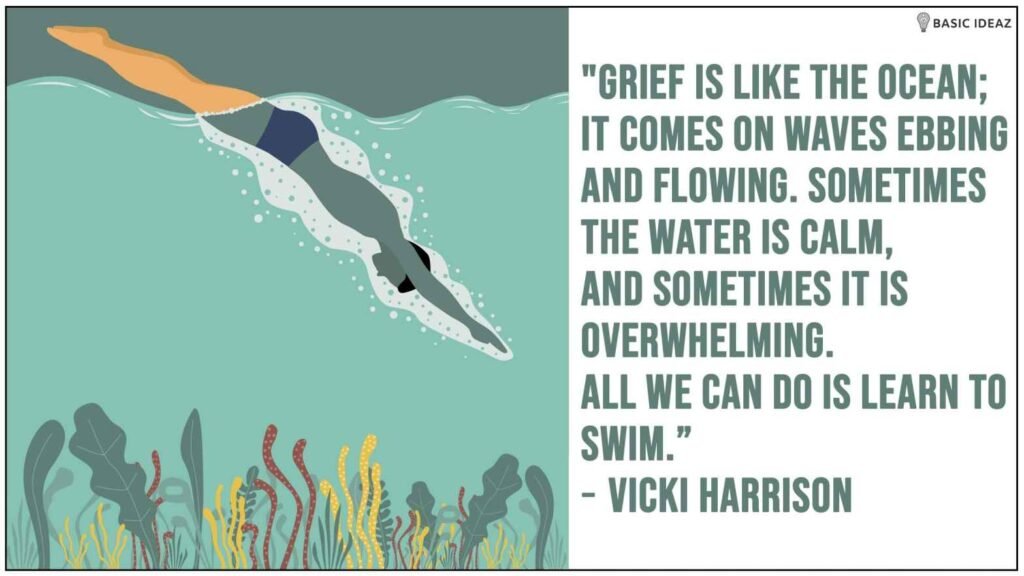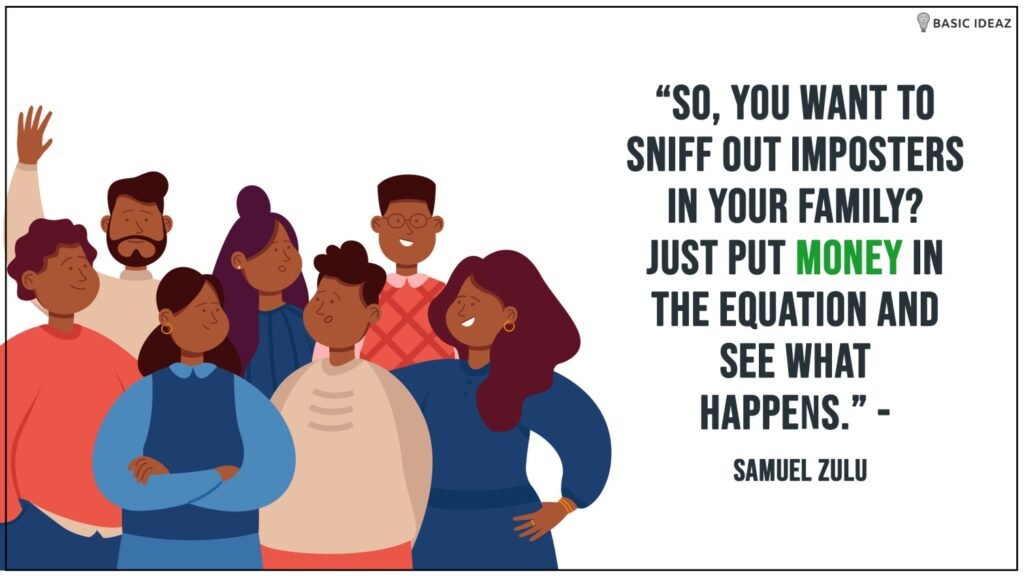Grief Comes in Waves Without Warnings | 6 Stages of Grief

Yes, Grief comes in waves like the flow of the ocean.
It’s not linear.
Infect, no emotion is linear, not even happiness and excitement.
Grief comes in waves and is invisible as the wind. It will knock you down to the ground without any warning.
You will experience pain and extreme sadness, and there will be times when you cannot do anything to it to go away.
Tears may roll down your cheeks over the memories, but sooner or later, you will understand that it is necessary to feel this pain and experience these emotions to heal.
Newsletter
Get best self-help articles weekly without any spams, and advertisements.
Thank you!
You have successfully joined our subscriber list.
Why Does Grief Come in Waves?
Grief comes in waves because human emotions are complex and can be triggered without warnings.
Though the intensity of waves reduces over time, the emotional center of the brain, the amygdala, can be triggered by memories, environment, or unexpected situations even after years.
You cannot be sad or happy all the time.
Grief includes a lot of emotions like sadness, feeling low, anger, regret, and guilt.
These emotions take time to heal; depending on the grieving process, some people may take longer to heal than others.
The below graph can help you better understand the waves of grief.

Also Read: How to Deal with Stress and Worry.
Some Famous Quotes on Grief Comes in Waves
- “Grief is like the ocean; it comes on waves ebbing and flowing. Sometimes the water is calm, and sometimes it is overwhelming. All we can do is learn to swim.”
― Vicki Harrison
- “Grief has no distance. Grief comes in waves, paroxysms, sudden apprehensions that weaken the knees and blind the eyes and obliterate the dailiness of life.”
― Joan Didion, The Year of Magical Thinking
- “Grief, after the initial shock of loss, comes in waves. When you’re driving alone in your car, while you are doing the dishes, while you are getting ready for work- all of a sudden, it hits you. How so very much you miss someone, and your breath catches, and your tears flow, and the sadness is so great that it’s physically painful.”
— Nicole Gabert
The 6 Stages of Grief
When Grief hits, it hits hard.
Your knee becomes weak, your vision becomes blurry, and sometimes the pain becomes so intense that your body starts to hurt.
Only if you could meet them one last time and have that one last hug!
But you know, you can’t.
Grief may never go away, not even after decades, but you will find a way to have peace with it.
The six stages of Grief that will lead to peace are given below:
1. The stage of Shock and Denial
In this stage, a person experiences shock and disbelief that something terrible happened to their loved ones.
They deny the reality because it is very hard to believe and very painful to accept.
Accepting the death of someone or going through a divorce doesn’t mean you are ready to forget them.
It only means that you accept reality and that someone will never return.
2. Anger
The next part of the grieving process is anger.
It is an essential part of the process because there is no justification or understanding when you lose someone.
Frustration and resentment will build up within you because it is unfair to lose someone you love so intensely.
You may blame someone or God for taking them away from you.
It is necessary to release these emotions through anger because if you do not, they will build up within you and convert into something else in the long run.
Moreover, you will never be at peace because you will always blame someone for losing your loved one.
3. The Stage of ‘Only if’ or Bargaining
Only if you had done this or that, then you might have a different reality now.
Only if you were there or paid more attention to your son or wife.
In this stage, your brain tries to find all the alternate realities that could have happened only if you had taken a certain action.
This stage is accompanied by guilt.
You think you are responsible for losing your loved one because you never took the required actions on time.
In most cases, a person has nothing to be guilty about, but our brain finds ways to blame us.
A person may even start bargaining with God — “I will never do this if you just bring them back for once, I will do this if you could just reduce this pain etc.”
4. Depression
When your bargaining and the expectation of an alternate reality seem to fade away, reality starts to settle in.
In this stage, you start to see reality, and your future seems gloomy and dark.
You will like to spend time alone and avoid social gatherings as much as possible. It may seem like there is nothing to live for.
The grief and sadness in this stage are hurting you, which is more painful than you can imagine.
You will understand that no one can understand this loneliness or sadness.
But this will not last forever.
It may last a long time, depending on the person, but not forever.
You will learn to live again and find motivation and joy to continue your life.
5. Acceptance and Finding Peace
Accepting doesn’t mean you are ready to forget your loved one and move on with your life.
Acceptance means you are ready to accept reality as it is, keep them in your memories, and continue it.
In this stage, you can talk openly about your loss, socialize with others, and try to find purpose in life.
You no longer blame others or yourself for what happened.
The pain and weight within you for a long time have decreased.
In this stage, you start to find peace with reality.
6. Hope and Finding Meaning
In this stage, you will find new light and meaning in your life.
You will remember your loved one with love and not with guilt and pain.
You will work on yourself, take responsibilities and find hope in life.
In this stage, you will smile again from the core of your heart.
Conclusion
Grief comes in waves, and it will come in many ways.
Sometimes, it may come from a sudden memory, a specific place, a song, or a scene in the movie.
When it comes, it will overwhelm you with emotions.
You may become emotionally frozen or burst into tears.
Moreover, there may not be anyone to support you or hug you when you need it the most.
But, over time, you will align with reality, and your pain will subside.
You will find peace and meaning and start to live again.
Best
Ahbab
Lorem ipsum dolor sit amet, consectetur adipiscing elit. Ut elit tellus, luctus nec ullamcorper mattis, pulvinar dapibus leo.





